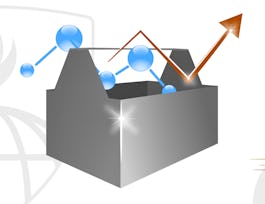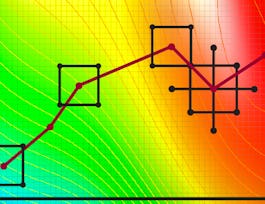This course teaches the fundamentals of scientific research. We approach the research process as a means of systematically reducing uncertainty and demonstrate how conducting a scientific investigation can be posed as an exercise in Bayesian uncertainty quantification. We begin by exploring the scientific landscape to understand the different types of research, where they are conducted, how they are supported, and why each of these types of research is important. We then formalize scientific inquiry and the scientific method and elaborate the research process and its scientific merits. Basic concepts in probability theory are introduced leading to a conceptually simple presentation of Bayes’ Rule. We then illustrate how Bayes’ Rule provides a mathematical framework for the research process. We place an emphasis on the role that research plays in our daily and professional lives and how research skills can help us think critically, whether you’re in a technical field or not. Exercises are designed to help you improve your research skills and think more scientifically.



Fundamentals of Scientific Research Under Uncertainty

Instructor: Michael Shields
Sponsored by InternMart, Inc
4,386 already enrolled
(31 reviews)
Skills you'll gain
Details to know

Add to your LinkedIn profile
12 assignments
See how employees at top companies are mastering in-demand skills


Earn a career certificate
Add this credential to your LinkedIn profile, resume, or CV
Share it on social media and in your performance review

There are 5 modules in this course
In this module, you will be introduced to the landscape of scientific research. Why do we perform research? Who conducts research and where do they conduct it? What different kinds of research are undertaken? Why are the various types of research important?
What's included
7 videos7 readings3 assignments3 discussion prompts
In this module, you will be introduced to the fundamentals of scientific inquiry. What makes an investigation scientific? How do we tell the difference between a scientific and a non-scientific inquiry?
What's included
5 videos5 readings3 assignments2 discussion prompts
In this module, you will be introduced to the different methods of inquiry, most notably the scientific method. You will learn the terminology used in scientific inquiries and define hypotheses and theories. You will learn the steps of the research process and how the research process is scientific.
What's included
4 videos2 readings2 assignments1 peer review
In this module, you will learn about the different types of uncertainty and how these uncertainties are modeled. You will learn some fundamentals in probability theory, specifically conditional probabilities and Bayes’ Rule, necessary to understand how uncertainty is modeled.
What's included
6 videos3 readings2 assignments
In this module, you will learn how the research process relates to uncertainty quantification. You will learn how to pose the research process through Bayesian hypothesis testing. You will learn how to develop a hypothesis and design a plan to test it using UQ methods.
What's included
5 videos2 readings2 assignments1 discussion prompt1 ungraded lab
Instructor

Offered by
Why people choose Coursera for their career




Learner reviews
31 reviews
- 5 stars
96.77%
- 4 stars
3.22%
- 3 stars
0%
- 2 stars
0%
- 1 star
0%
Showing 3 of 31
Reviewed on Dec 26, 2024
I recommend this course to build foundation of Scientific Research Under Uncertainity. It takes care of necessary learning dimensions of these topic and keeps motivated
Recommended if you're interested in Physical Science and Engineering

Utrecht University

University of Colorado Boulder

Johns Hopkins University

McMaster University

Open new doors with Coursera Plus
Unlimited access to 10,000+ world-class courses, hands-on projects, and job-ready certificate programs - all included in your subscription
Advance your career with an online degree
Earn a degree from world-class universities - 100% online
Join over 3,400 global companies that choose Coursera for Business
Upskill your employees to excel in the digital economy


